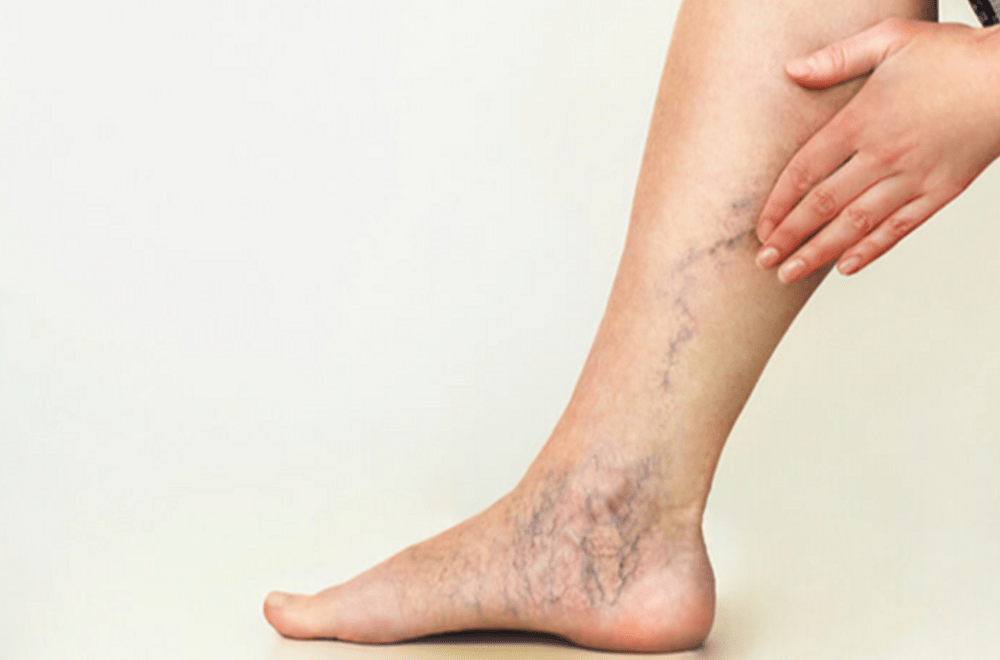Does venous leak happen suddenly?
Venous leak typically doesn’t manifest suddenly, except in certain cases. Adolescents, around the ages of 16 to 18, may experience this issue. In this age group the problem is often congenital factors or other causes such as trauma, surgery, or excessive masturbation.
In middle-aged men, the problem of venous leak may have its origins many years prior to being recognized. For elderly males, venous leak is often associated with conditions like diabetes, vascular diseases, and other serious illnesses.
Here is how the venous leak develops due to above-mentioned causes.
Vascular Issues: Damage to the blood vessels in the penis can disrupt the normal blood flow required for an erection. Conditions such as atherosclerosis (hardening of the arteries) can contribute to venous leaks.
Penile Trauma: Injuries to the penis, particularly those that affect the veins responsible for blood retention, can result in venous leaks. This trauma might be a result of surgery, accidents, or other physical injuries.
Peyronie’s Disease: This condition involves the development of scar tissue in the penis, causing curvature and potential disruptions in blood flow.
Neurological Factors: Nerve damage or disorders affecting the nerves involved in the erectile process can contribute to venous leaks.
Psychological Factors: Stress, anxiety, and other psychological issues can negatively impact sexual function, potentially leading to or exacerbating venous leaks.
Can venous leak be cured naturally?
Venous leak is a technical problem and the definitive treatment of this issue requires some sort of medical intervention. However, many studies have proven that healthy lifestyle changes and dietary adaptation can mitigate the symptoms significantly.
Healthy life choices:
Leading a healthy lifestyle is essential for overall well-being and can positively impact vascular health. Consider incorporating the following habits:
Regular exercise: Engaging in regular physical activity can improve blood circulation, support cardiovascular health, and contribute to overall vascular function. Aerobic exercises, such as walking, jogging, or swimming, are specifically helpful for the vascular cause of venous leak.
Venous leak exercise helps in strengthening the pelvic floor muscles, which are responsible for maintaining erection.
Maintaining healthy weight: Obesity is often linked to vascular issues. Achieving and maintaining a healthy weight through a balanced diet and regular exercise can alleviate stress on blood vessels.
Limiting alcohol and tobacco use: Excessive alcohol consumption and smoking can negatively impact blood flow and vascular health. Limiting or eliminating these substances can be beneficial.
Dietary adjustments:
Heart healthy food: Heart-healthy food is crucial for addressing venous leaks. A diet rich in fruits, vegetables, whole grains, and lean proteins supports cardiovascular health. Additionally, incorporating specific elements into your diet can further promote vascular well-being.
Foods such as fatty fish (like salmon and mackerel), flaxseeds, and walnuts, which are rich in omega-3 fatty acids, can contribute to improved blood flow.
Fiber-rich food: Easily digestible foods like whole-grain bread, barley, oats, and rye can prevent constipation, a factor that can exacerbate the symptoms of venous leaks.
Fruits and vegetables: Include a variety of fruits and vegetables such as pears, berries, melon, oranges, potatoes, broccoli, carrots, and sweet corn in your diet. These not only contribute to overall health but also help relieve constipation.
Dairy and meat: The consumption of curd is considered beneficial. While red meat can be included in the diet, it is advisable to avoid broiler chicken due to the excessive quantities of hormones present in it.
Turmeric: This spice, commonly used in Indo-Pak cuisine, has been a traditional remedy for trauma, pain, and various illnesses. Turmeric’s anti-inflammatory properties can reduce inflammation and swelling, ultimately alleviating the symptoms associated with venous leaks.
How do you treat a leaking vein?
The treatment of venous leak depends on individual health and the severity of the condition. Here are common medical treatment options for venous leak:
Medications: Blood vessels dilating medication such as Viagra may be prescribed to enhance blood flow to the penis.
Vacuum Erection Devices (VEDs): These devices use a vacuum to draw blood into the penis, creating an erection. It involves placing a constriction band at the base to maintain the erection.
Penile Implants: In cases where other treatments are ineffective, surgical insertion of a penile implant may be considered. This is a more invasive option but can provide a reliable solution. Doctors only recommend only as a last resort and usually for elderly patients.
Venous Leak embolization: It is a minimally invasive 3-D precision guided technique in which the leaking vein is blocked without any surgery. The entire procedure is done with endovascular technique and devices used in neurovascular procedures.All the devices and medications used are FDA approved.The United States Food and Drug Administration (FDA or US FDA) is a federal agency of the Department of Health and Human Services.
In this procedure, the doctor inserts a catheter, a thin tube, through the blood vessels to reach the targeted area. The catheterization process is usually performed through the femoral vein in the groin area.The catheter is mean to introduce small particles or coils into the targeted veins. These materials are designed to block or occlude the leaking veins.The embolic material is strategically placed to block blood flow through the identified veins, preventing the escape of blood during an erection and improving penile blood retention.
After the embolization is complete, additional imaging may be performed to ensure that the targeted veins are successfully blocked, and blood flow is redirected appropriately. This highly advanced procedure is performed with the latest technology and is not commonly used worldwide. Dr. Imtiaz Ahmed introduced this procedure in Pakistan. He is an expert interventional radiologist and an endovascular surgeon with extensive experience in treating various conditions via a minimally invasive approach. Dr. Ahmed has successfully treated many patients with venous leaks using the embolization technique, with the youngest one being 16 years of age.
For further information,please feel free to email us at info@drimtiazahmad.com. Follow us on Instagram @Profdr_imtiaz_ahmad for more details and daily updates Youtube:https://www.youtube.com/c/DrImtiazAhmad
Whatsapp:03302963300,03312597322

